What President Trump's Desk Says About Him, According to Experts

By:
As Donald Trump has gone from reality television host to president of the United States, we're seeing a whole lot more of him — quirks included.
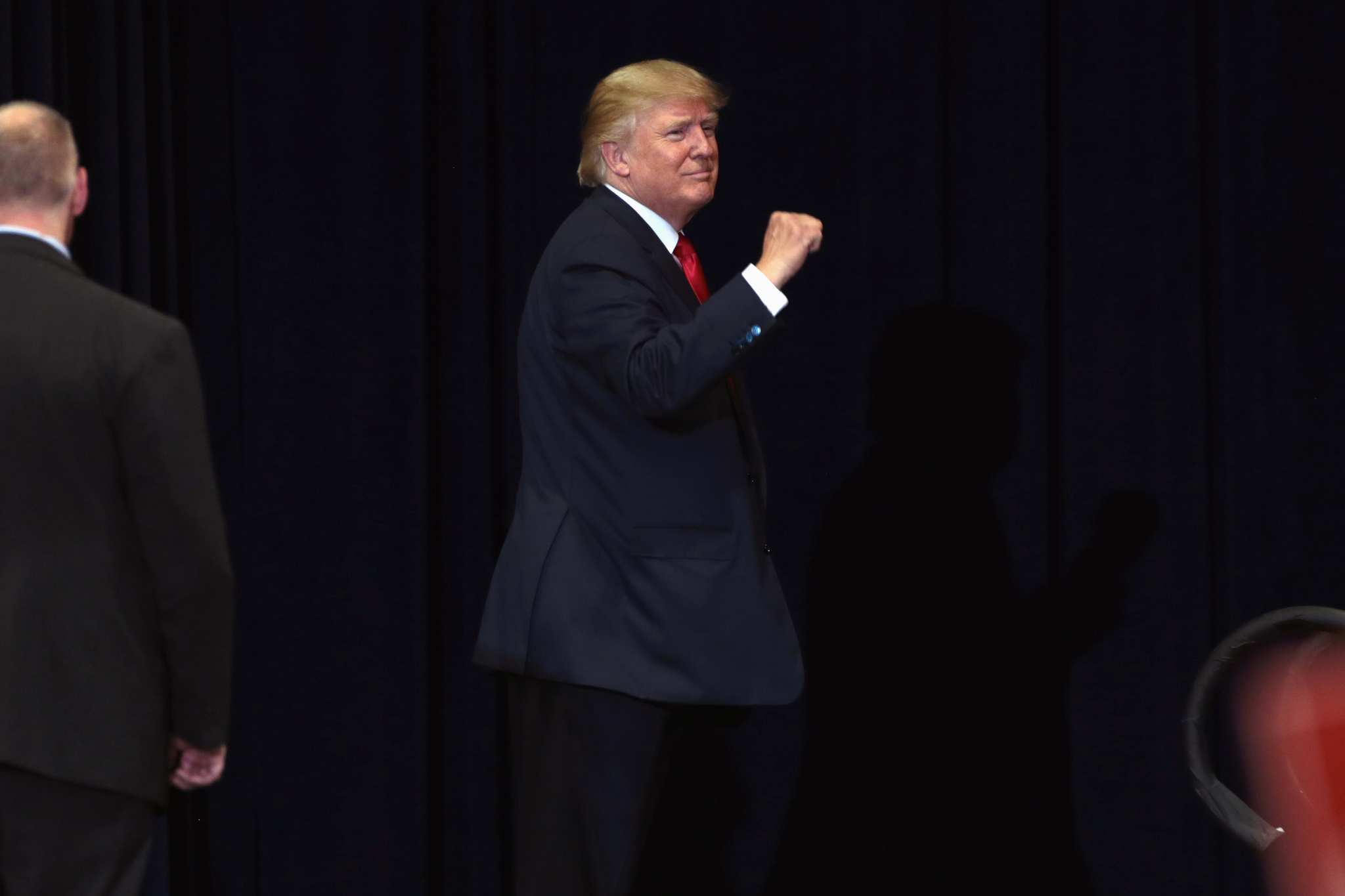 Gage Skidmore/Flickr - flic.kr
Gage Skidmore/Flickr - flic.kr
Much has been made of President Trump's signature handshake, for example. But there's another thing grabbing peoples' attention: the state of his desk.
Why? Because President Trump's desk is seriously cluttered — or, as Esquire magazine bluntly phrased it, "Donald Trump's Desk Is a Mess." But more intriguing than a messy desk is Esquire's follow-up question: "What Does This Say About the President?"
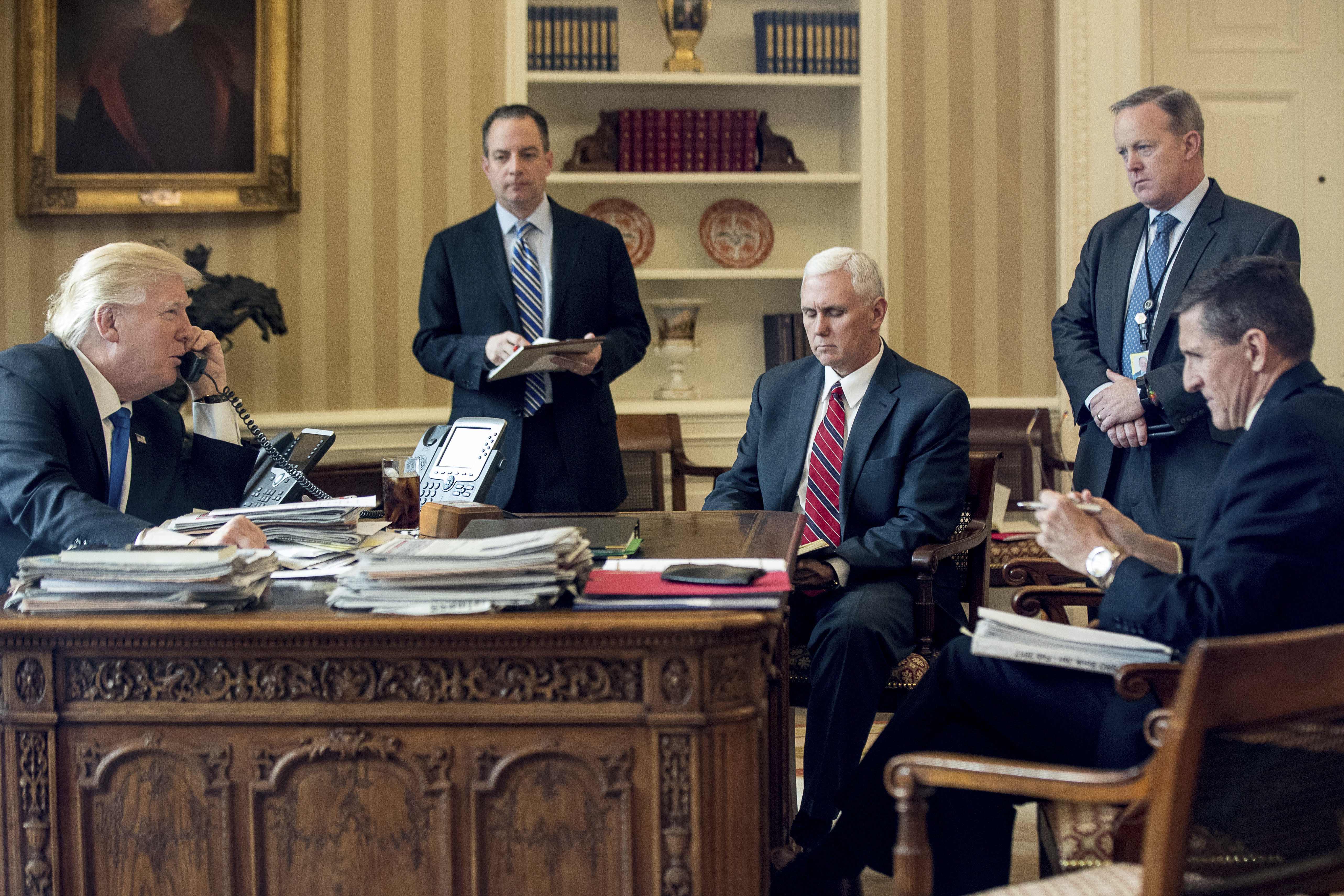 Andrew Harnik/AP Images - apimages.com
Andrew Harnik/AP Images - apimages.com
Esquire is not the first publication to point this out; Vogue asked nearly the same exact question in January, perhaps spurred by President Trump's comment in a Sean Hannity interview days before: "Look at my desk. Papers. You don’t see presidents with that on their desk."
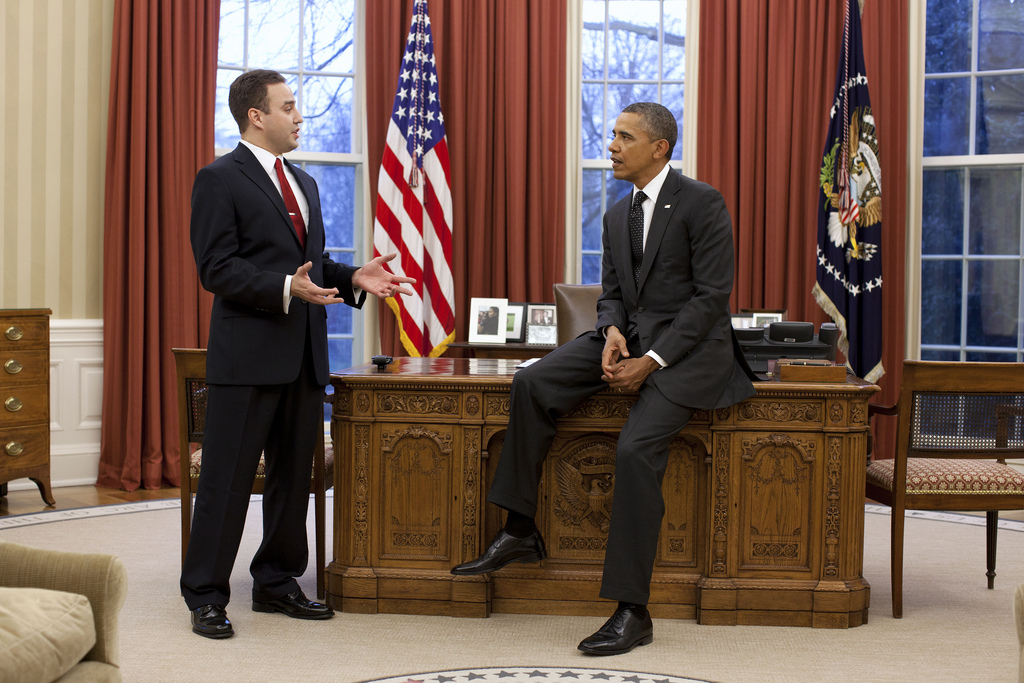 Flickr / NASA Goddard Space Flight Center - flickr.com
Flickr / NASA Goddard Space Flight Center - flickr.com
"Throughout history, the president’s desk has been depicted as the pristine picture of organization," Alexandra Macon wrote for Vogue. "It’s impossible to know if this was always the case or simply concocted for photo ops—but it’s difficult to imagine Presidents Obama or John F. Kennedy with stacks of disorganized file folders and scattered papers strewn about the Oval Office."
President Trump kept an untidy desk even before he began working in the Oval office.
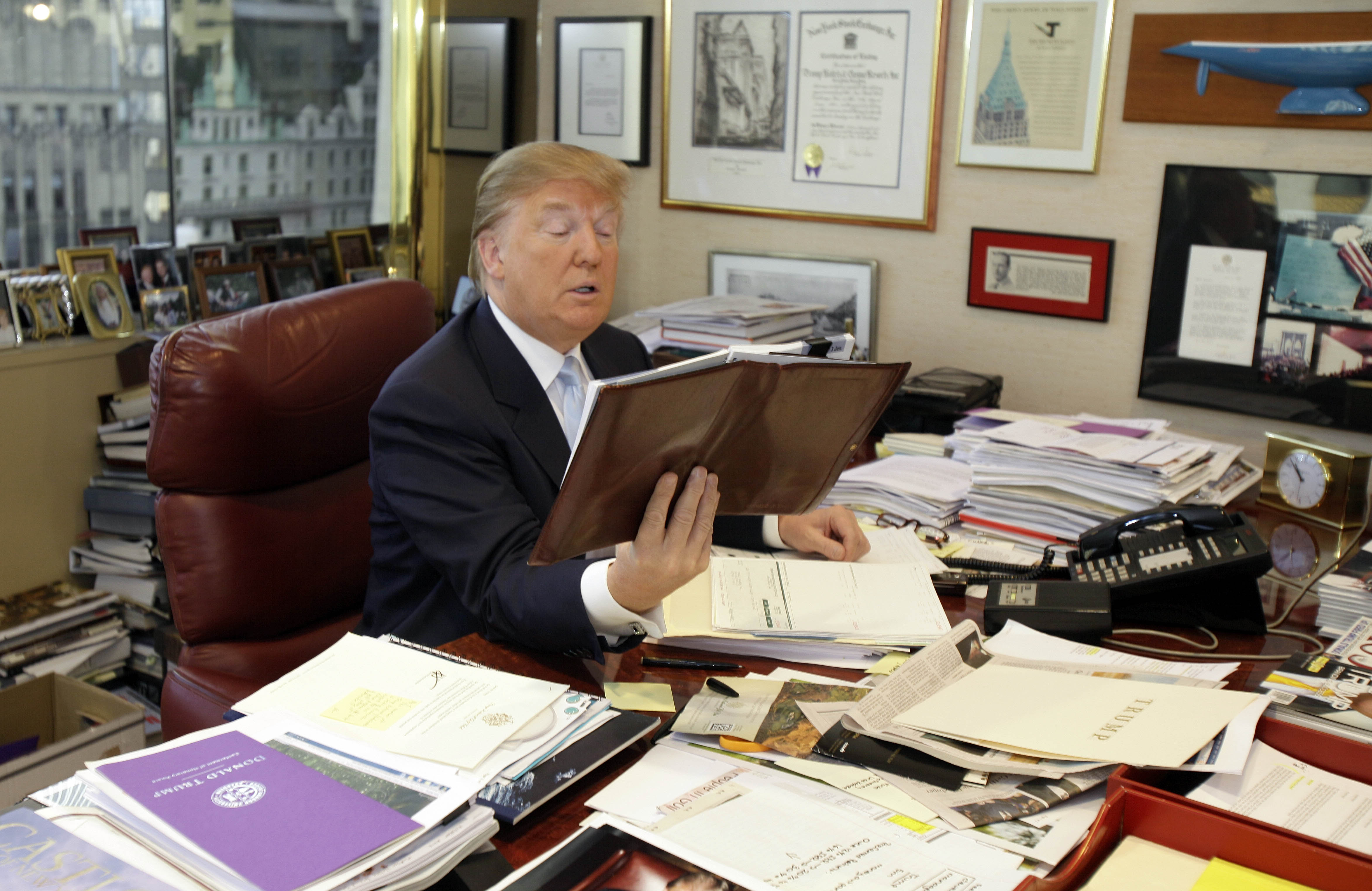 AP Photo/Richard Drew - apimages.com
AP Photo/Richard Drew - apimages.com
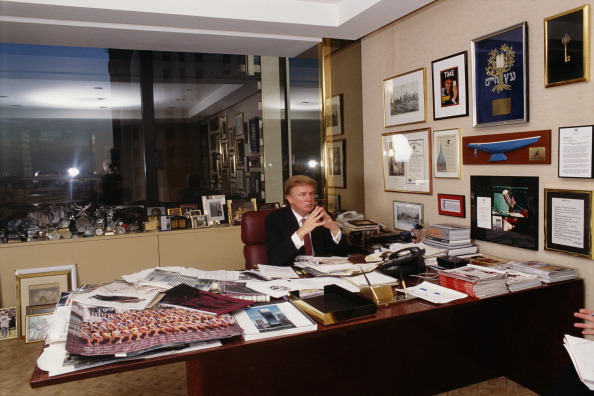 Michael Brennan / Getty Images - gettyimages.com
Michael Brennan / Getty Images - gettyimages.com
But is having a messy desk a sign of having a messy mind? Not necessarily, according to scientists.
Dr. Kathleen D. Vohs conducted an oft-cited study on this in 2013 titled, "Physical Order Produces Healthy Choices, Generosity, and Conventionality, Whereas Disorder Produces Creativity."
Her team of researches conducted a series of three experiments in which they asked subjects to spend time in both a "disorderly" and "orderly" room, and asked them to make specific choices in each room:
Experiment 1 showed that relative to participants in a disorderly room, participants in an orderly room chose healthier snacks and donated more money.
Experiment 2 showed that participants in a disorderly room were more creative than participants in an orderly room.
Experiment 3 showed a predicted crossover effect: Participants in an orderly room preferred an option labeled as classic, but those in a disorderly room preferred an option labeled as new.
The takeaway? "Disorderly environments seem to inspire breaking free of tradition," Vohs and her fellow researchers found, according to The New York Times, and that "can produce fresh insights." Vohs suggested that clutter can actually help you "think outside the box."
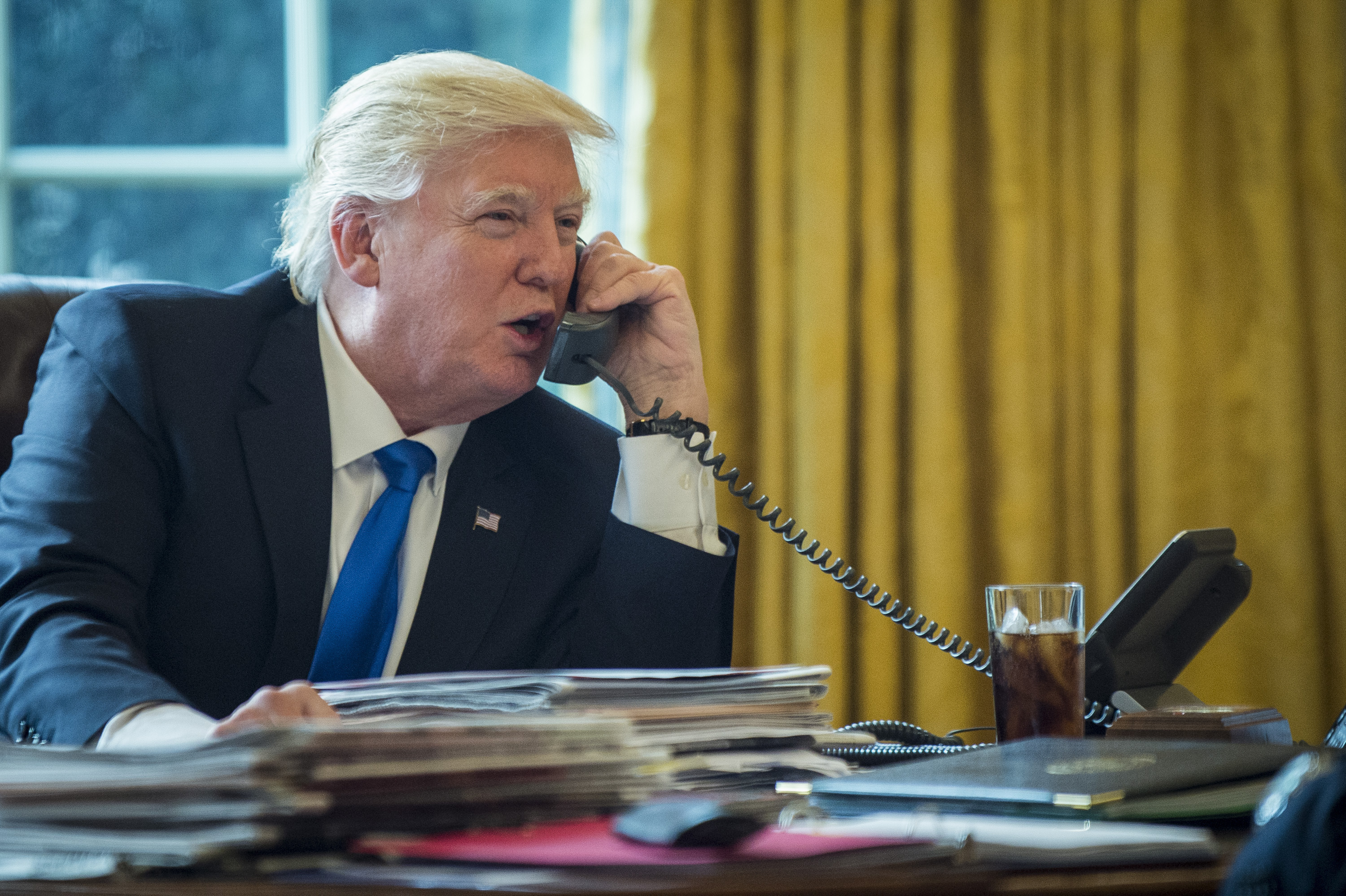 Pete Marovich/AP Images - apimages.com
Pete Marovich/AP Images - apimages.com
Esquire, meanwhile, reported that "another study, at Northwestern University, similarly found that 'people in messy rooms drew more creativity and were quicker at solving creative problems.'"
However, there are those who argue that creativity is not necessarily the same as problem-solving. Julie Morgenstern, who wrote a bestselling book on organization, told Esquire a messy desk can "signify a work style of starting many things, finishing none, with all of those stacks representing unfinished projects."
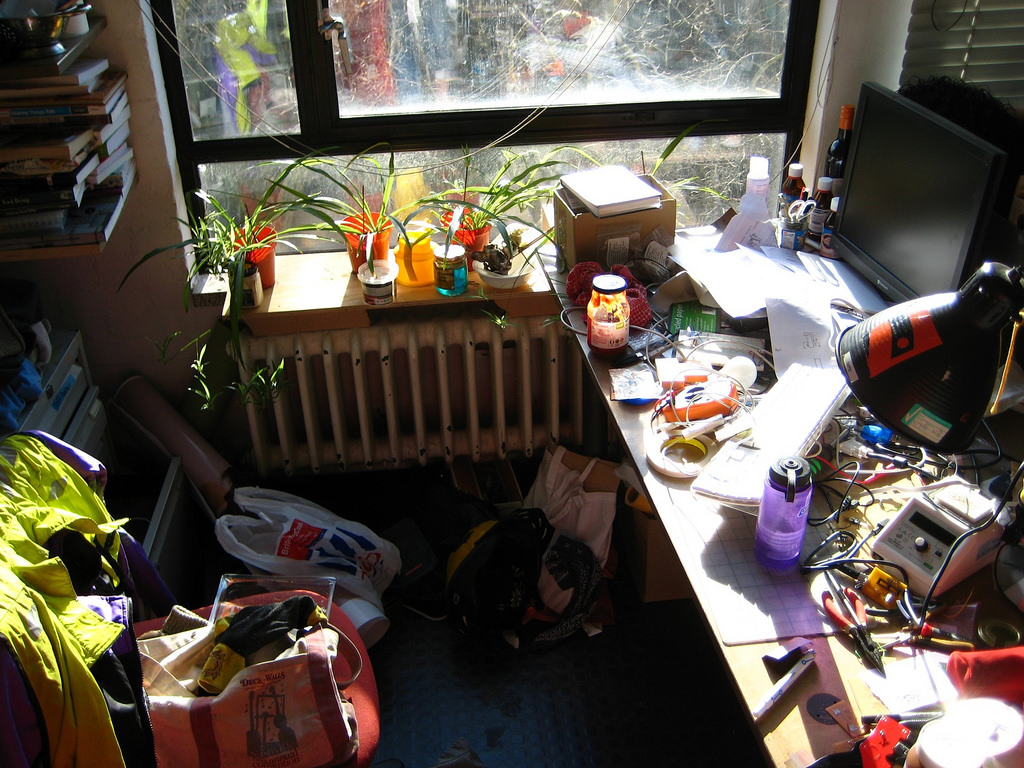 Jeff Easter/Flickr - flic.kr
Jeff Easter/Flickr - flic.kr
"If things are piled up it can be an indication that people are not managing their time well, that they're not giving things the time and attention they need," she added.
To be fair to President Trump, President Obama and both President Bushes "actually did their main work and study in a room across from the hall called the President's Study," Morgenstern told Esquire, "so when they came into the Oval Office, it was not their only workspace."
Perhaps the tidiest desk President Trump has ever been pictured at was the one in Mar-a-Lago, which may or may not have been a receptionist's desk:
[H/T Vogue]
